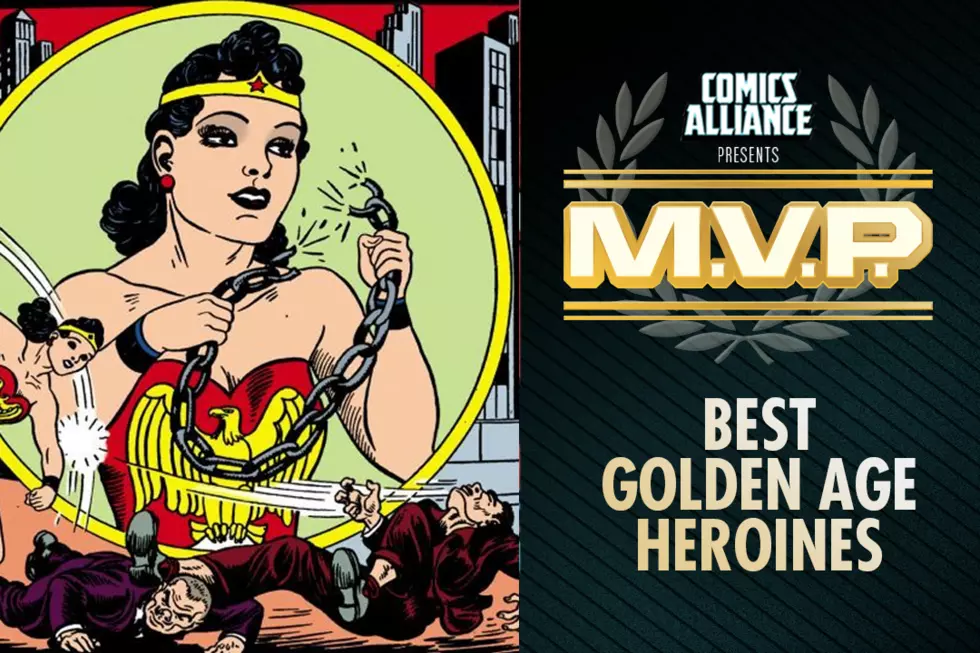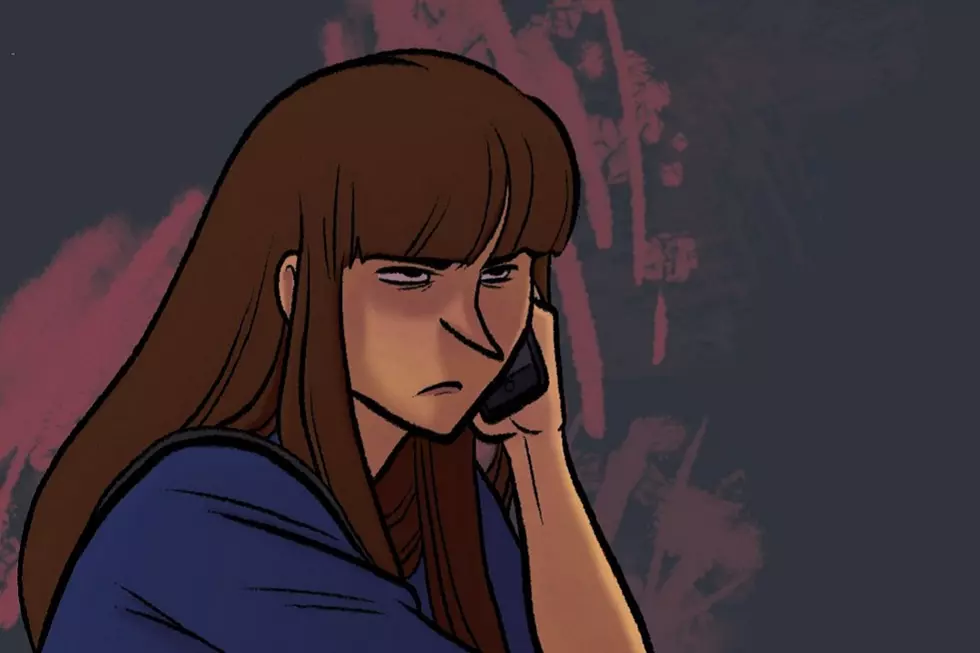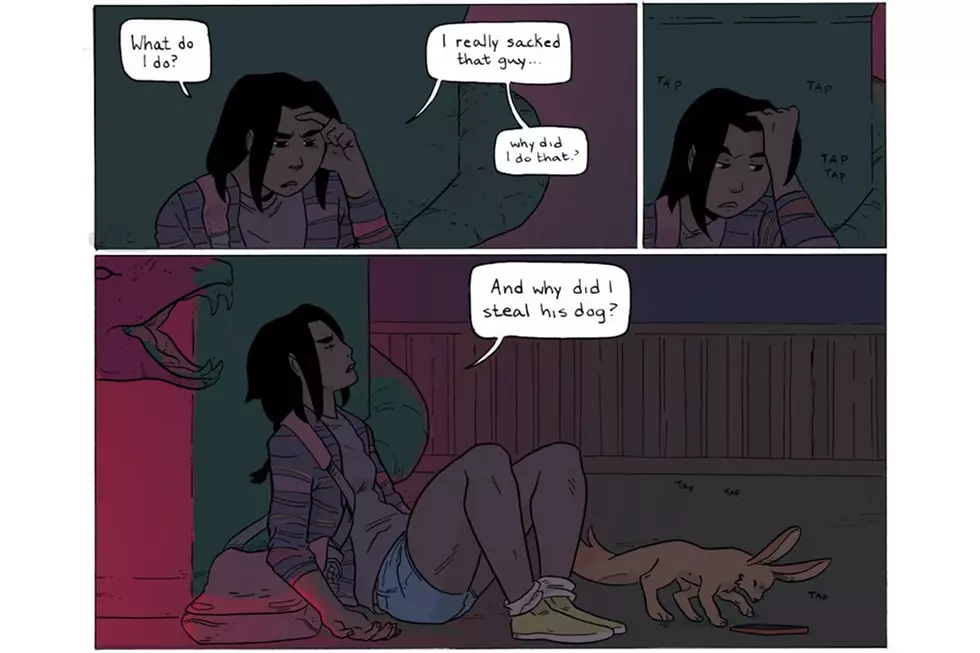
Denver ComicCon Had a Women In Comics Panel With No Women
This weekend's Denver ComicCon came under fire when attendees discovered that a Women in Comics panel had only male panelists. While a representative of DCC has defended the panel as "not about current women creators or anything to do with industry bias," it seems odd that a convention with Trina Robbins, the eminent historian of women as creators and characters, as a guest would not invite her to join in on a discussion of the history of women in comics. While the misstep here is primarily on the panel organizers, it also raises a question of what obligation conventions have to moderate and comment on panels that are accepted.
Convention attendee Christy had this to say about what occurred at the panel:
Christy's last point is an important one --- if these guys are experts, as posited below, how could they possibly not know any women in comics to speak on this panel? Jason Jansky of DStreet PR responded to my email to Denver ComicCon to offer this statement:
In regards to the Women in Comics panel, I think it’s important to point out that it was a panel that took an historical view of women characters in comic books rather than the current role of women creators in the industry or diversity in comics --- of which DCC has many with appropriately diverse panels. The Women in Comics panel was a submitted panel that featured respected academics on the subject.
A reading of the panel description indicates that the panel was not about current women creators or anything to do with industry bias. “With the female interest in comics increasing lately, this panel discusses many of the popular female characters from the beginning of the superhero mid 1930s comics. Also a focus on some of the women that were able to break in the mostly all male club of creating comics during that time. Includes an introduction to many of the female illustrators/creators attending the convention. Kevin Robinette --- Instructor Academy Art University of San Francisco, History of American Comics, Craig Glassen --- Art Instructor, Denver area schools, Jason H. Tucker --- The Way Interactive graphic novel app.”
There are a lot of problems to unpack here, with probably the worst being that a convention representative thinks it's okay to have only men speaking for and about women simply because a panel wasn't about current women in comics, diversity, or bias. And even the former part of that is clearly incorrect, given that part of the panel description is that it would introduce attendees to women attending the convention.
The statement that the panel featured "respected academics on the subject" is also a huge problem, given that the organizers neglected to invite the foremost authority on the history of women in comics, Trina Robbins, despite the fact that she was a guest of the convention. It's also not clear from the panel description what academic credentials Jason H. Tucker of The Way Interactive graphic novel app has.
Certainly men can be part of the conversation about the place of women in comics throughout history and even today. But they should not be the only people speaking, nor should any panels featuring men speaking about women be given a pass because they're about history and not diversity. Women deserve the right to speak about their own history.
The fact that these men did not include a single woman on the panel does not reflect well on them. Unfortunately, I was unable to track down any of them online to request a statement. They have marginal social media presence, if any, and Tucker has a website with an email address that bounces back.
Jansky also pointed me in the direction of the convention's diversity mission, which reads:
Denver Comic Con promotes education and community, educating children and the general public through pop culture, comics and bringing together the diverse people and interests of our community regardless of age, race, gender or background. By focusing on education and providing guests, programming and events that encourage diversity, we strive to promote tolerance and empower the members of our community.
DCC is committed to maintaining a diverse community of exhibitors drawn from the general community, and a significant percentage of our exhibitors will be drawn from these applicants. So even if you are new to DCC, you are invited to apply for the upcoming event.
I was a guest of DCC last year, and I have to say that if I had heard the convention had approved a Women in Comics panel but hadn't put any women on the panel, then I wouldn't feel "empowered," and I certainly don't think that's properly educational. In fact, I was on DCC's Women in Comics panel last year, and it was standing room only with around 10-12 women as panelists. After the panel, many young women came up to speak with the panelists to talk about their desire to make comics. You know what makes young girls feel like they can become comics creators? Meeting women who are comics creators. You know what doesn't? Getting a lecture from a man about the history of women in comics and their place in relation to men.
I also asked Jansky for clarification on how DCCC approves panels, and he told me:
As for panel acceptance: Denver Comic Con vets panels based on their proposal. The con values all different points of view, as long as their purpose is educational, and not hate speech, harassing in purpose, or strictly self-promotional. We don't, however, "edit" the content because that might considered imposing our point of view over our panelists. This particular panel was a last minute addition because the program director respects the submitter’s qualifications and scholarship, had an open slot, and wanted a panel on the history of comics. We didn’t think it would be appropriate to deny the panel simply because of his gender.
If you’d like to talk to someone at Denver Comic Con about its diversity mission, I can try to set up a telephone interview with Bruce MacIntosh, the program director for DCC and the cahirman of Pop Culture Classroom (DCC’s parent nonprofit organization that utilizes comic books and pop culture in the classroom to engage kids in literacy and education). I can’t promise when he’ll be available, or for how long, but I know he loves to talk about it—it’s a mission that he developed so it’s very dear to him (despite being a straight, white male himself).
This raises a lot of questions about what a convention should do in this situation. Should a group of straight people be allowed to submit and present a panel about the history of LGBTQ people in comics? Should white people get a panel approved about the history of people of color in comics?
It's not that we must limit the discussions of these groups of people only to those in the group --- after all, allies are an important part of the conversation --- but marginalized voices should be included in a conversation about anything and everything that affects them, including history. No matter how much research I did, I would not feel comfortable speaking with authority even on the role of non-white characters in comics, because I would lack a great deal of context about what it's like to live as a person of color.
The right thing to do here would have been for the panelists to reach out to the convention and mention that since they were talking about women in comics, they would like to include a woman, and could the convention recommend a guest to appear on the panel? Alternatively, conventions should be willing to tell panel organizers that they should have diverse panelists on panels about marginalized groups if they expect their panel to be approved. Otherwise, all the diversity missions in the world don't make you look good when something like this happens.
More From ComicsAlliance
![When Everything Is Pink, Nothing Is Pink: Sarah Stern On Color And Creativity [Interview]](http://townsquare.media/site/622/files/2017/03/Cindersong-feat.jpg?w=980&q=75)








